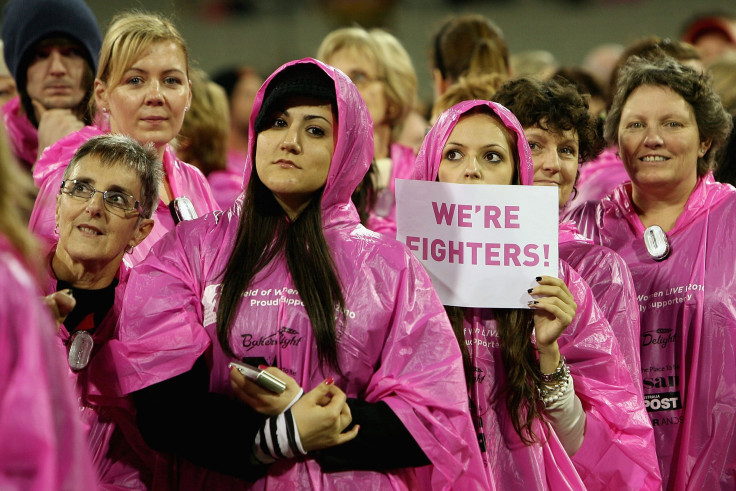A Cure For Breast Cancer? How Nanoparticles Can Stop It From Spreading

Scientists have discovered that man-made nanoparticles may be a powerful tool to fight breast cancer.
Using a new technology to harness the particles, researchers were able to halt the spread of breast cancer in mice, according to a new study published Wednesday in the journal Science Translational Medicine. The technique was found by scientists at the Cold Spring Harbor Laboratory, Dana-Farber Cancer Institute, and Stony Brook University, among other institutions.
The new technology breaks from other next-generation cancer-fighting approaches and actually targets specific cells that help cancer metastasize in the body. Other technologies being investigated, like Crispr genetic splicing, tend to focus on harnessing the body’s immune system to fight against the cancer.
The way it works seems a bit complicated to those outside of the medical community. The nanoparticles target immune cells that build structures called neutrophil extracellular traps (NETs), which normally fight bacteria but can be exploited by cancer cells. The nanoparticles are coated with a special enzyme that kills the cells before cancer can get in there. Three out of nine mice given to the nanoparticle didn’t show any breast cancer progression at the end of the study and the entire control group had cancers that continued to worsen.
But there's still a lot for the researchers to discover before the tools begin to be used in humans and whether or not it can be used to fight other cancers.
"Could it be even other types of cancer beyond those two? We don’t know that yet so that’s why we are in the process of developing methods to detect these NETs in tumors and potentially even in the blood of patients that would be a way to understand how general or how not general this is," Mikala Egeblad, a researcher with Cold Spring Harbor and author of the study, told the International Business Times in a phone interview.
Roughly 40,451 women die each year from breast cancer and doctors diagnose roughly 246,660 cases each year. Breast cancer is the second leading cause of cancer death among women in the U.S. and 1 in 36 women are expected to die from the illness.
© Copyright IBTimes 2024. All rights reserved.






















